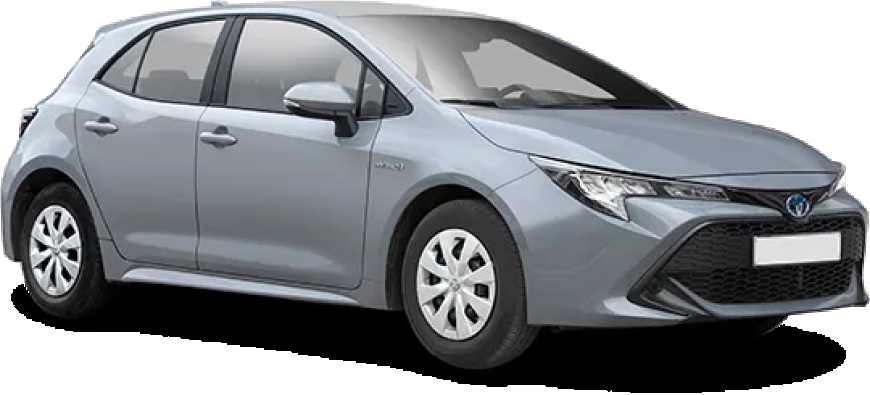Greener Roads Ahead: How Cash-for-Car Programs Fight Climate Change
Unwanted Car Collection helps remove old vehicles safely, recycle parts, and lower emissions. Learn how this process supports environmental goals and cleaner communities.

Cars have shaped modern life, making travel easier and connecting people across long distances. But while vehicles bring movement and convenience, they also contribute to environmental damage. Older cars, especially those with poor fuel efficiency or faulty engines, release large amounts of greenhouse gases and toxic substances into the air. One solution growing across Australia is the cash-for-car system. This model not only clears space but also helps reduce pollution and supports recycling.
This article explains how these programs help the planet, manage old vehicles properly, and move us closer to a cleaner future.
What Are Cash-for-Car Programs?
Cash-for-car programs offer money in exchange for old, unwanted, or damaged vehicles. The goal is to take polluting vehicles off the road and recycle what can still be used. These programs are available in many parts of Australia and have become a popular way to remove cars that no longer serve a purpose.https://northcoastwreckers.com.au/
These vehicles are often dismantled at recycling centres or wrecking yards. Parts that still work are taken out and offered for reuse. Materials such as metal, rubber, and glass are sorted for recycling. By doing this, the process keeps harmful items out of landfills and reduces the need to mine new resources.
How Old Cars Harm the Environment
Air Pollution
Older vehicles often have engines that burn fuel less cleanly. This leads to higher emissions of carbon monoxide, nitrogen oxides, and hydrocarbons. These pollutants affect both air quality and public health. In large cities, traffic is one of the major sources of air pollution.
According to the Australian Department of Climate Change, older petrol and diesel cars can emit over 30% more carbon dioxide than newer models with improved engines. Removing these vehicles helps reduce the total amount of emissions on the road.
Soil and Water Damage
Leaking fuel, oil, and coolant from unused cars can sink into the soil and enter waterways. These substances are harmful to plants, animals, and human water supplies. Even batteries can leak acid and heavy metals when not stored properly.
Leaving a car to rust in a yard or open space is not only an eyesore but a risk to the environment around it. When disposed of properly through a car removal or wrecking service, these threats are removed safely.
Recycling Makes a Difference
Recovering Materials
An average car contains steel, aluminium, plastic, copper, glass, and rubber. When a vehicle is recycled, most of these materials can be reused. Steel from scrapped cars is often melted down and used in new products. This saves energy and reduces the environmental cost of mining raw materials.
Recycling just one tonne of steel can save more than 1.1 tonnes of iron ore and reduce carbon emissions by nearly 70%. In Australia, more than 500,000 vehicles are scrapped each year, and most of the metal in these cars is recycled.
Reusing Parts
Not every car needs to be completely destroyed. In many cases, working parts such as engines, tyres, mirrors, and gearboxes are removed and sold. These can be used in repairs or to support other vehicles still on the road. Reusing car parts helps reduce waste and lowers the demand for manufacturing new parts.
Helping to Reduce Climate Change
Transport is one of the largest sources of greenhouse gas emissions in Australia. According to government data, it contributes over 18% of the countrys total emissions. By taking old and polluting vehicles off the road, cash-for-car programs help reduce this impact.
Even small changes matter. Replacing older cars with newer or more fuel-efficient vehicles, or removing them entirely, can lead to cleaner air, better fuel savings, and lower carbon output. These steps are a part of broader efforts to reduce the pressure on the climate and build a more sustainable future.
Clearing Space, Supporting Clean Practices
Old or broken vehicles often sit unused on private property, taking up space and posing environmental risks. Some owners delay removing them due to time or cost. That is why some local services offer collection with no charge.
In places like Townsville, one such company provides Free Car Removal Townsville services, helping residents clear their yards while ensuring the vehicle is handled correctly. These efforts support the recycling industry and stop waste from ending up in landfills. It also allows old cars to be put to new usewhether through spare parts, scrap metal, or safe disposal.
Facts That Show the Impact
-
Around 25% of car parts can be reused directly in other vehicles
-
Up to 90% of a cars materials can be recycled
-
Each recycled car battery prevents 10 kilograms of lead from entering the environment
-
Removing one older petrol car can reduce yearly emissions by over 1.5 tonnes of carbon dioxide
These numbers show that each step in the process has real effects on the planet and on daily life.
Building a Greener Future Through Small Actions
Fighting climate change is not only about major government policies or large industry shifts. Everyday choices also matter. Scrapping an old vehicle through a car collection or cash-for-car program is one way individuals can make a difference. It clears space, protects the environment, and supports recycling systems that keep valuable materials in use.
Car recycling also helps keep roads safer. Older vehicles often have mechanical faults, worn brakes, or outdated safety systems. Removing these cars lowers the number of breakdowns and accidents on the road.
Conclusion
The roads we travel on today leave a mark on tomorrow. Old cars, when left unchecked, release pollution, take up space, and create waste. But when handled through proper programs, they become part of the solution.
Cash-for-car systems play a role in protecting air, land, and water. By recycling parts, recovering materials, and stopping harmful leaks, they reduce environmental damage. They also support industries focused on repair and reuse, keeping cars running longer and reducing the need for new resources.









































